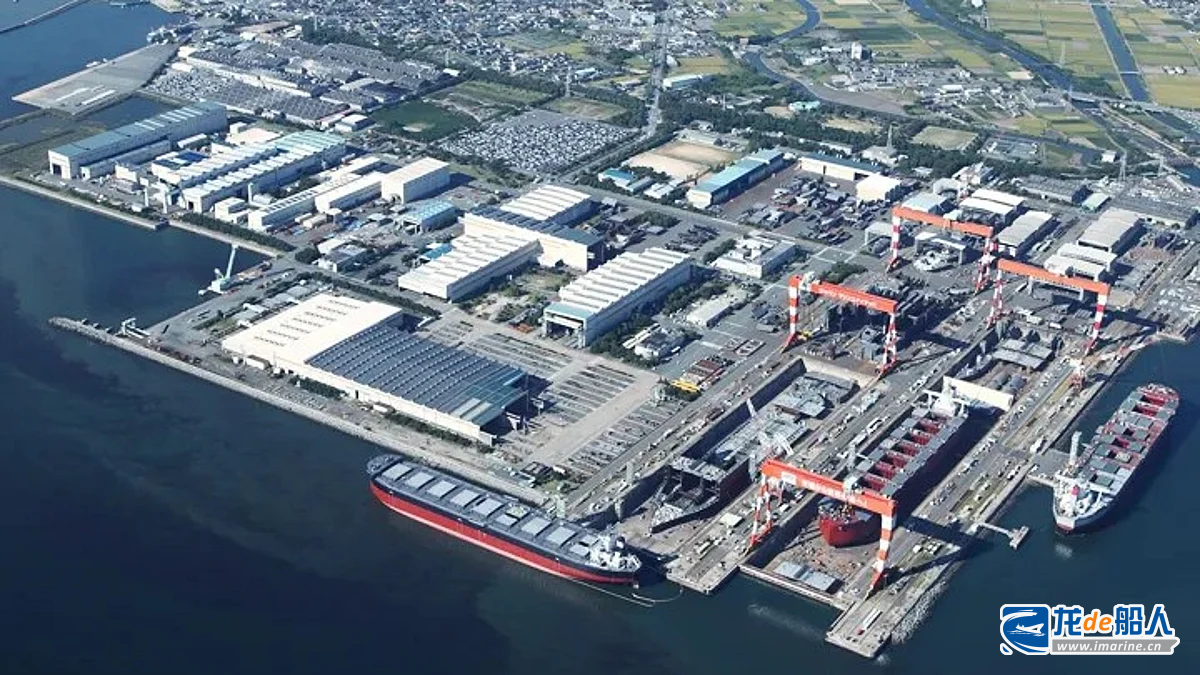Nikkei Asia reported on the 20th that, unlike the South Korean shipbuilding industry, which is actively promoting cooperation with the United States, Japanese shipbuilding companies remain reluctant to invest in the US shipbuilding industry despite pressure from the government.

The report said that although the Japanese government had promoted cooperation in the shipbuilding sector during tariff negotiations with the United States, the Japanese shipbuilding industry was cautious about investing in the US market due to high labor costs and a fragile supply chain.
Imabari Shipbuilding, Japan’s largest shipbuilding group, recently stated that it is not considering investing in the United States at this time. Despite calls from Japanese authorities for cooperation with the US shipbuilding industry, Imabari Shipbuilding stated that Japan’s share of the global shipbuilding market has fallen to 13%. The company is currently unable to help the US and hopes to invest its funds in Japan’s domestic shipbuilding industry.
Under a new trade agreement reached between Japan and the United States on July 23, Japan will provide $550 billion in investment and loans to the United States based on the agreement, with a focus on key industries including shipbuilding.
In a press release about Japan’s planned investment fund, the White House explained that “investments will include new shipyard construction, modernization of existing shipyard facilities, and investments in merchant ships and maritime defense.”
The Japanese government also stated that it would “work closely together to build a resilient supply chain that benefits both sides,” and that the shipbuilding industry would be part of these efforts.
However, Nikkei Asia pointed out that there are differences among Japanese circles on whether to invest or not. Japanese shipbuilding companies are not only negative about US investment, but also have a cold reaction to US warship repairs in Japan.
A Mitsubishi Heavy Industries official said, “There have been no specific discussions regarding the expansion of US Navy ship repairs, and the company does not have the capacity to do so. Our company will cooperate within the scope of its capabilities in accordance with government policy.”
In contrast, the Korean shipbuilding industry, which holds a 30% share of the global shipbuilding market, has adopted a different strategy.
The South Korean government announced it would establish a $150 billion shipbuilding cooperation fund through a trade agreement with the United States. Against this backdrop, the South Korean shipbuilding industry has officially launched discussions on the “Make American Shipbuilding Great Again” (MASGA) shipbuilding cooperation project between the two countries.
Nikkei Asia reported that major South Korean shipbuilding companies such as HD Hyundai Heavy Industries, Hanwha Ocean and Samsung Heavy Industries are all affiliated to large corporate groups with large scale and quick decision-making, and they alleviate labor shortages by using foreign workers and robotics technology.
However, the current situation of Japan’s shipbuilding industry is worrying. Japanese shipyards, which once dominated the global shipbuilding market, have seen a significant shrinkage in their market share. Currently, the vast majority of orders are secured by China and South Korea. According to Clarksons’ data, in the new ship orders of 2024, Chinese shipyards accounted for 69%, South Korean ones for 15%, and Japanese ones for only 7%.
Meanwhile, established shipbuilding enterprises such as Mitsui E&S Holdings, Sasebo Heavy Industries, and Sumitomo Heavy Industries have successively withdrawn from the shipbuilding industry.
In order to revitalize the shipbuilding industry, the Japanese government announced earlier that it plans to double shipbuilding output by 2030 and restore its market share to 20%.
In addition, Imabari Shipbuilding, Japan’s largest shipbuilding group, acquired Japan Marine United (JMU), Japan’s second-largest shipbuilding company, as a subsidiary through equity acquisition. By combining advantageous resources through a strong alliance, it will help improve competitiveness in the global shipbuilding market to cope with fierce global competition.


